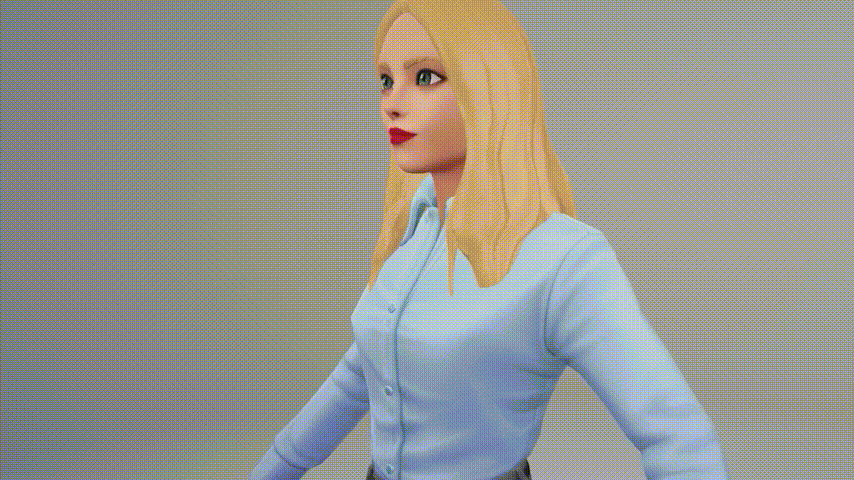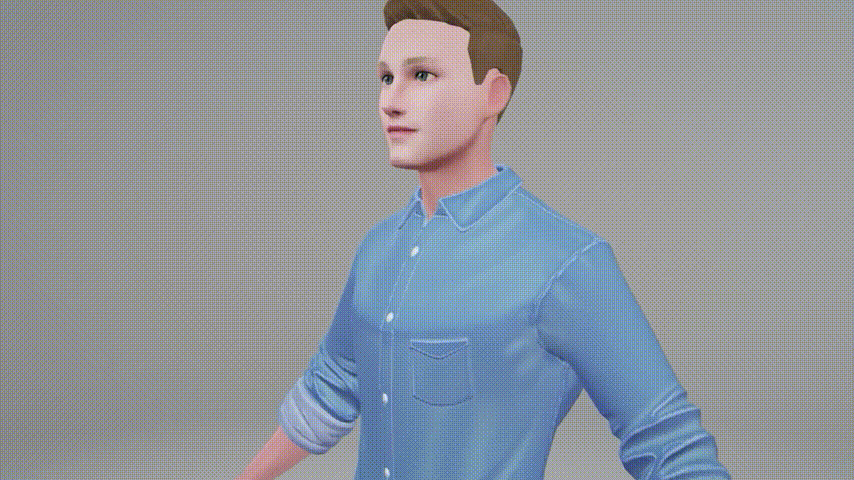studiumdigitale is the central eLearning department of Goethe University Frankfurt am Main and builds on a successful organizational development process for the university-wide implementation of eLearning at the University of Frankfurt. The task of studiumdigitale is to offer innovative improvement of teaching with the help of digital media inside and outside the university. In addition to the didactic-technological orientation, the compatibility of research and business activities is of central importance.
Germany as a country has been obligated to follow the Convention on the Rights of Persons with Disabilities. Instead viewing persons with disabilities as “objects” of charity, medical treatment and social protection towards viewing persons with disabilities as “subjects” with rights, who are capable of claiming those rights and making decisions for their lives based on their free and informed consent as well as being active members of society. This project has been created with the mindset to educate others how to ensure the participation of persons with disablities in our daily life.
We emphasize on the Convention on the Rights of Persons with Disabilities (CRPD), which is intended to be a human rights instrument with a clear social development component. It adopts a broad classification of people with disabilities and reaffirms that all people with disabilities must have access to all human rights and fundamental freedoms. Therefore, we identify and try to work on areas where adaptations must be made for people with disabilities to effectively exercise their rights within the university context and ease of access to education.
Where we started
People’s lives can be improved immensely by some simple actions taken by any of us. The problem caused by insufficient accessibility affects many, the most prevalent issues can be found in the field of education. Every presentation or information not visible enough or labeled incorrectly leads to frustrated students simultaneously dealing with impairments. For these issues to be addressed, we need to bring these problematics to those in charge of conceptualization and decision makings.
An idea emerged to create a serious game with various minigames representing visual impairment issues, which would be much more fun than just sitting through a presentation. Not only will this spice up the learning process, but the game will also provide the players/users with a different perspective. The goal was to create more awareness, but in a manner, which is engaging enough to stay with you afterwards.
A Serious Game Prototype, including 5 different minigames representing various visual impairment issues, was designed by following the serious game design principles found in the book „Serious Games – Foundations, Concepts and Practice“. The game engine Godot was used to program the game, including various 3rd party add-ons, written dialogs and 2d graphics. For the game to be accessible for further development without any licensing issues, only open source and free-to-use tools, graphics, sounds and music were used and credited where it was needed.
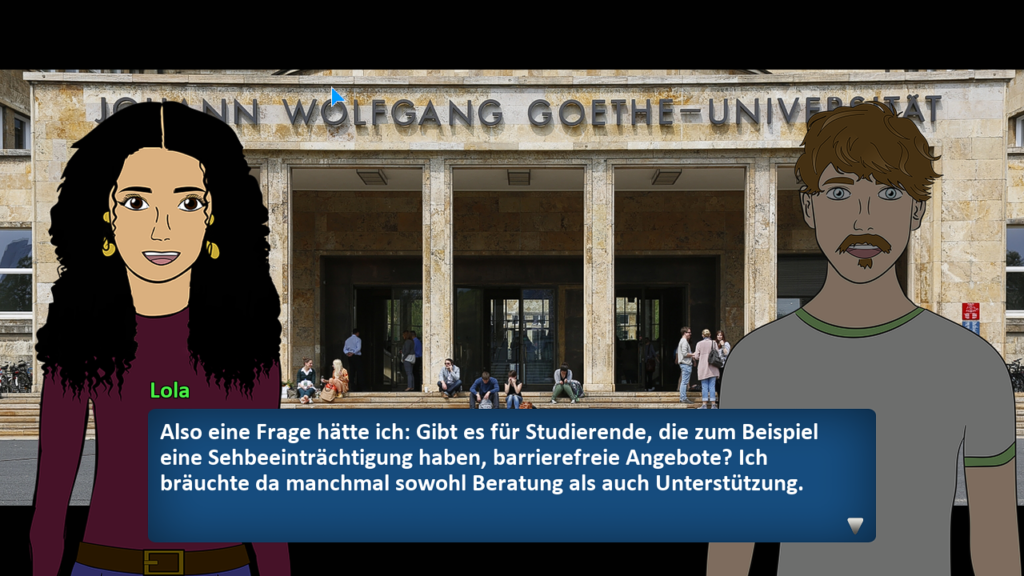
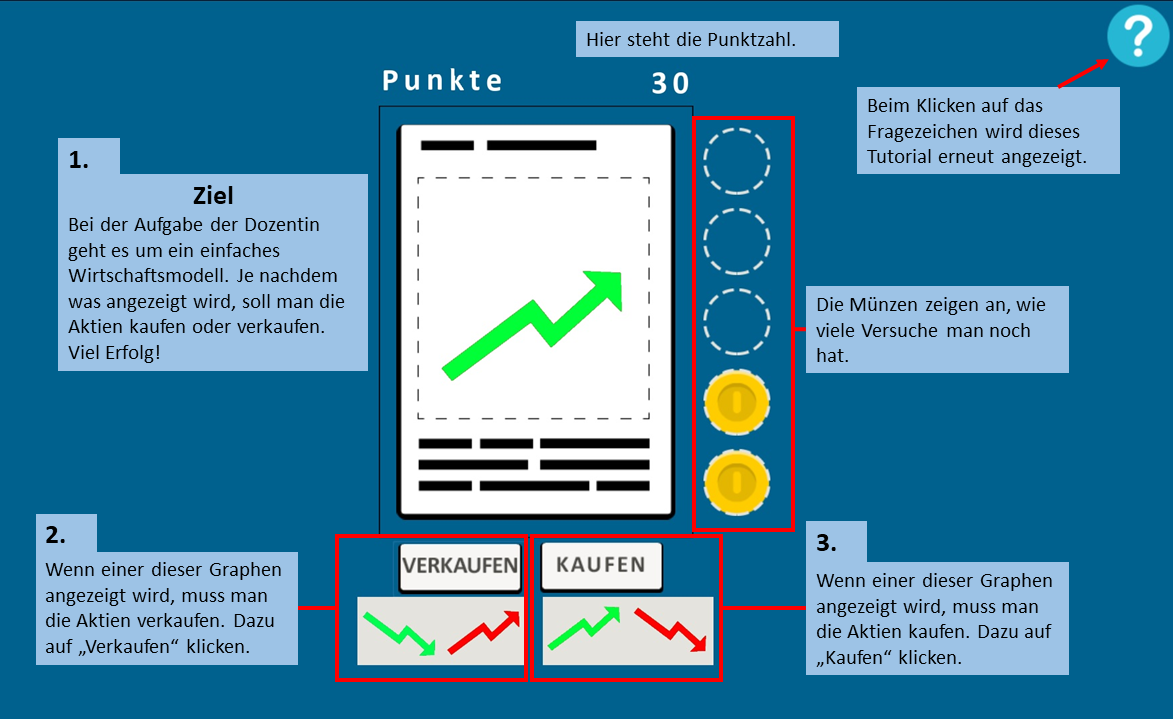

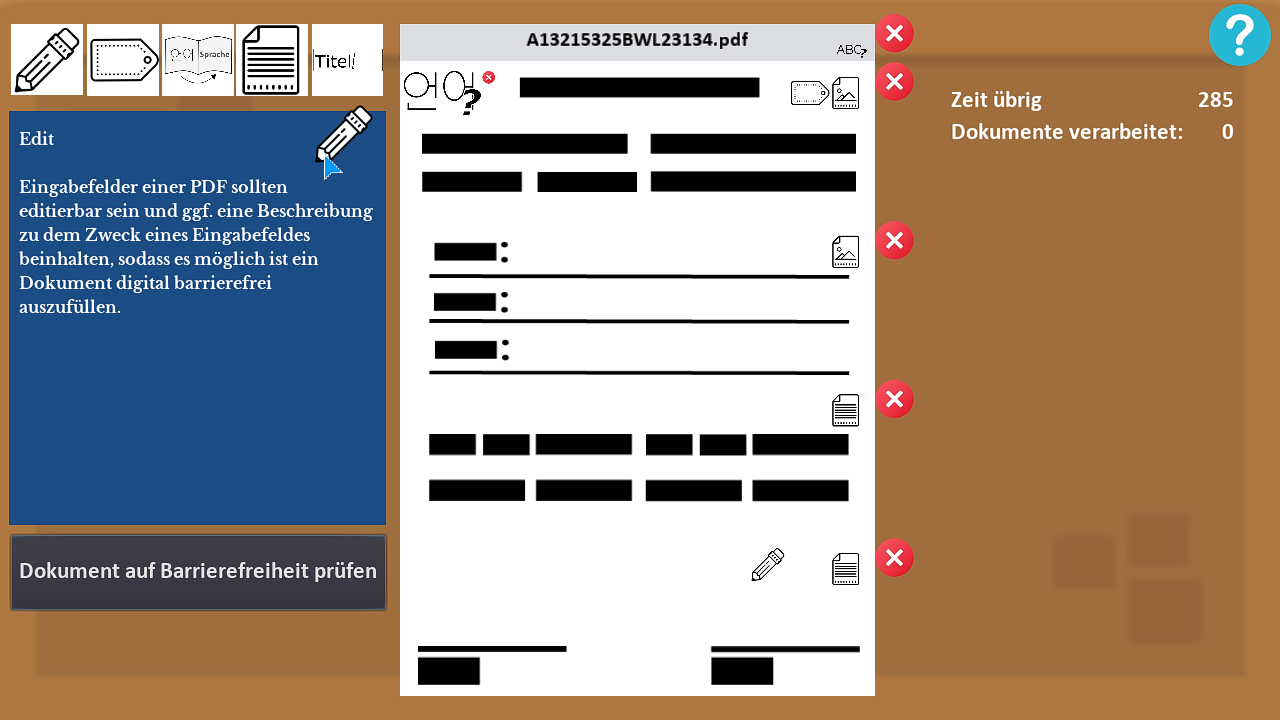
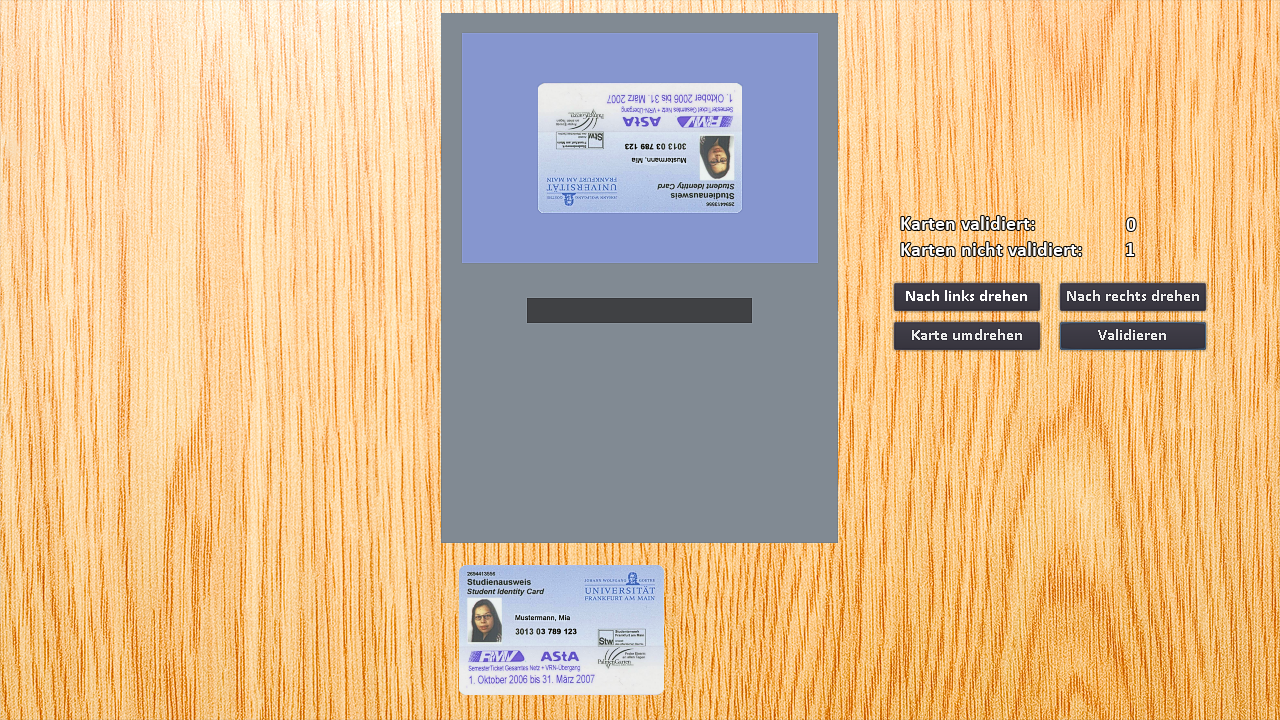
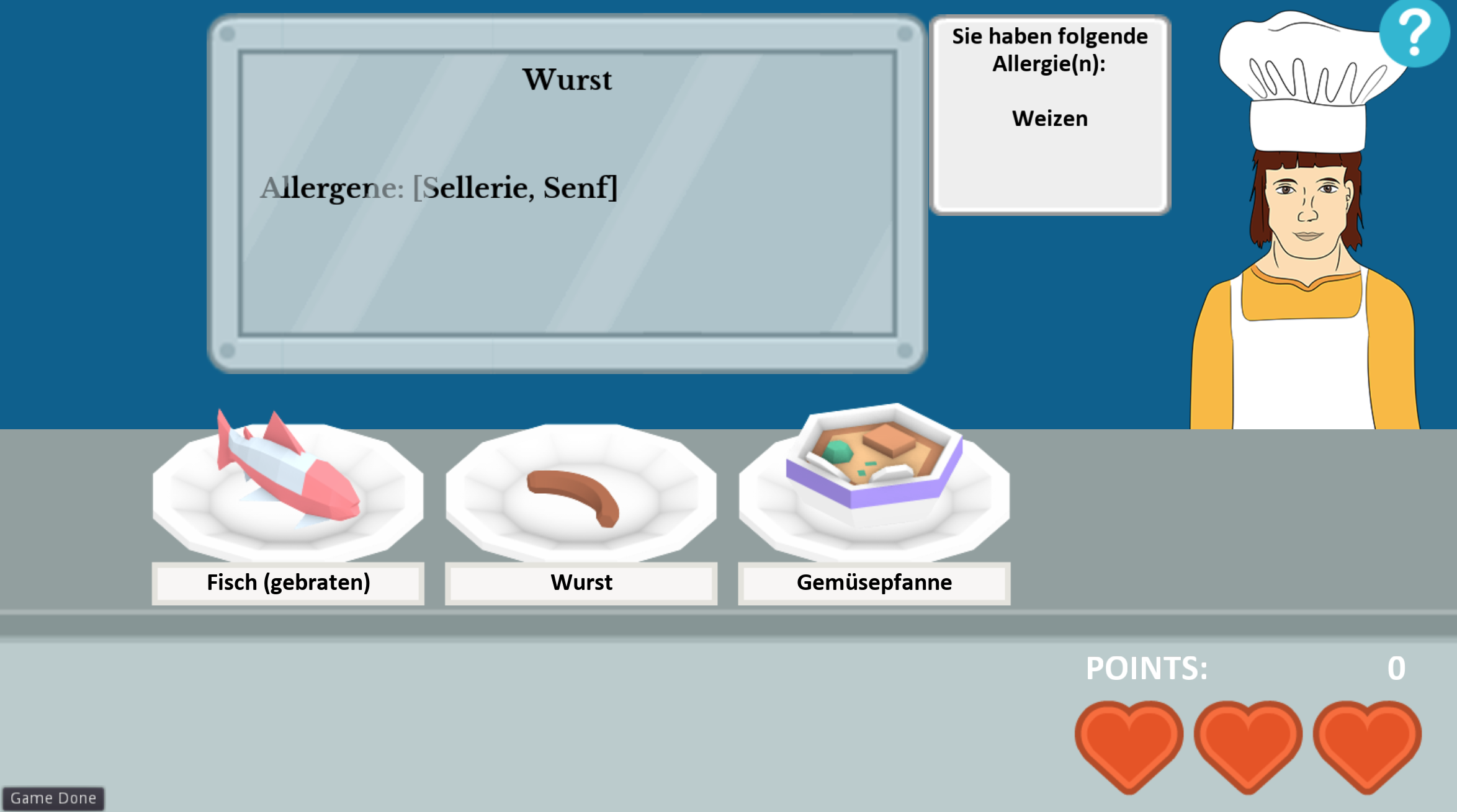
The serious game “Lolas first Semester” showcased the journey of Lola [ LINK ]. A new student with the visual impairment glaucoma. Through Lola and various other characters, the game touched upon visual impairment issues such as color blindness, problems with online classes, not accessible documents, not user-friendly machines, and information which can’t be easily read.
Scientific Methods used
The developed game was first and foremost a serious game which has a target audience of teachers, professors, and workers in various departments. The engaging, fun and short gameplay has intrinsic motivation for our target audience. We closely followed the serious game design principles found in Ralf Dörner et al. Serious Games – Foundations, Concepts and Practice [DGEW16], where we designed the game with our target audience’s competencies in mind to make it as accessible as possible.

We also tried to stay true to Game Flow by implementing Dual Flow, which is unique to serious games. Dual Flow balances between game experience and characterizing goals. [DGEW16]. It was very important to create a gameplay which melts the narrative and the visual impairment specific minigames together in a way for the players to get themselves right in the sweet spot.
To have that balance, it was very important to create a gameplay which melts the narrative and the visual impairment specific minigames together in a way for the players to get themselves right in the sweet spot. Their competence had to match the task difficulty so they wouldn’t either be bored or have difficulty playing. To minimize the overload on information some dialogues were made into skippable sections, so the player could read it only if they wanted. This led to a better streamlined version of the narrative.

Each of the minigames showcased an aspect of the daily struggles
| Mini-Games | Description |
|---|---|
| Color Vision Deficiency | This game shows how color choices of learning materials affects those who can’t see the colors correctly, leading them to cope with not accessible learning materials |
| Online Classes | Here we get to learn how learning materials which are only screen casted, lead to problems for those who rely on text to speech to follow. Also which problems arise when there are sounds within an online class leading to hearing difficulty. |
| Digitalization | One of the major problems still is when PDFs are not well highlighted, marked or made accessible for text to speech softwares to read them correctly. |
| Card Validation | Students with vision deficiency have problems validating their student ids because the machines have no audio guidance. |
| Cafeteria | Players learn about potential problems of small texts written on boards and making fast decisions at the same time can lead to. |
Evaluation of the game
The fun of gaming (FUGA) project was funded by the European Community under the New and Emerging Science and Technology (NEST) program. It was designed to develop new approaches and build on existing initiatives to decide how the Game Experience can be comprehensively measured. This can be applied when designing new digital games, be it for entertainment, education or therapy.
First, all the project partners worked together to create a multidimensional model of Game Experience, to look at players motivation, to process the game events and their performance.
At some point they needed a method for measuring the emotional experience. That’s when they created the Game Experience Questionnaire (GEQ). The Game Experience Questionnaire is freely available and widely used in a broad scope of game genres and user groups.
Our Plan
After an evaluation of the serious game was done by using the Game Experience Questionnaire (GEQ), we got feedback that the game was well received. Our involvement in various networks with other universities regarding serious games has shown us the existing demand of having technical capabilities for the implementation of different scenarios for various issues to showcase.
Therefore, we developed a plan to combine these two ideas together and implement it in two steps.
As we want to implement more immersion and better storytelling into our game, we want to improve upon our game by remaking it in 3D. The players should be able to walk around in an interactive environment and be able to communicate with different characters with spoken dialogues and facial expressions. Our choice fell on the Unreal Engine due to the available tools and assets it provides such as Blueprints, VR capability, Quixel Library, Metahuman etc. These all together will provide us the opportunity to be able to make a game with visual finesse and deep immersion which is otherwise harder to achieve. For now, we are planning to use other AI tools such as NVIDIAs Audio2Face for the facial expressions, Replica Studios for voice acting and Plask.ai for motion capture. Not only shall our game me remade, but it will also have the possibility to have add-ons in the future so different types of issues can be showcased and the game can be extended. The serious game will be available for free to anyone with the supported hardware. Within the university context the game will be also playable via Unreals Pixel Streaming at dedicated networking events.
With this first step we want to ensure to have an immersive serious game tackling visual impairment issues to raise awareness. In the grand scheme though, it is just the starting point.
As a development process of this serious game, a framework shall be built up simultaneously. This free to use framework will help other universities achieve their goals to create a modern-day serious game. The universities will have an authoring tool in their hands and with it they can input the characters, write the dialogues, and set up the scene. Afterwards the tool will export the settings which will then be read by the framework and every character and event will be set according to it. This will allow them to rapidly prototype their ventures which will free up time for a better merging of scientific methods and gameplay.
The framework (an Unreal Project) will be modularized, and different plugins would be developed by us for the Unreal Engine which will be used and implemented to help with the development process. These plugins will be open to the community as GitHub projects for free to use and further development. Not only will the project get the technical expertise from our side, it will also have the backing of a whole department of the Goethe University Frankfurt dedicated to assist this project.
After the successful completion of this project, we want to push for separate department with dedicated curriculums for games development where we see projects created with Unreal Engine as our standard learning and creation tool.
Budget
As this project is planned to be completed within 2 years, we have done a budgetary split
1st Year Budget
| Employees | Quantity | Total amount for all quantities |
| Project coordinator (75 %) | 1 | 51 000 € |
| C++ / Blueprint Developer | 1 | 68 000 € |
| 3D Artist | 1 | 68 000 € |
| assist. Student (80 h/month each) | 2 | 15 000 € |
| Hardware | ||
| Workstations | 5 | 15 000 € |
| Software | ||
| Adobe CC | 3 | 2 304 € |
| Adobe Substance | 1 | 571 € |
| Replika Voice AI | 1 | 550 € |
| Deepmotion | 1 | 900 € |
| SFX and Music | 1 | 1 000 € |
| TOTAL 1st YEAR | 222 325 € |
2nd Year Budget
| Employees | Quantity | Total amount for all quantities |
| Project coordinator (75 %) | 1 | 51 000 € |
| C++ / Blueprint Developer | 1 | 68 000 € |
| assist. Student (80 h/month each) | 2 | 15 000 € |
| Software | ||
| Adobe CC | 3 | 2 304 € |
| Adobe Substance | 1 | 571 € |
| TOTAL 2nd YEAR | 136 875 € |
| TOTAL AMOUNT NEEDED FOR THE LOLA PROJECT | 359 200 € or 378 299 USD (Rate of 5th December 2022) |
What we will provide for this period
| Research & Development | Employees | Hardware | Software |
|---|---|---|---|
| In form of Dissertations: Bachelor, Master, or Phd Thesis | 1x Project coordinator (25 %) | Monitors | Our university infrastructure |
| Artificial Intelligence | 1x assist. Student | Accessories | |
| eLearning | VR-Headsets | ||
| Accessibility | |||
| VR / AR | |||
| Serious Games | |||
| Evaluation (Methods) |
If you want to know more about our previous work:
Joint Conference on Serious Games 2021/22 – Staffordshire University (staffs.ac.uk) (virtual) Conference on Educational Technologies of the GI Section on Educational Technologies – DeLFI 2021 Conference (virtual) Please feel free to get in touch with us with any kind of question. We would love to hear from you!
Linda Rustemeier, Sarah Voß-Nakkour, Saba Mateen and Imran Hossain: „Creation and future development process of a serious game: raising awareness of (visual) impairment DOI „
https://link.springer.com/book/10.1007/978-3-030-88272-3
Linda Rustemeier, Sarah Voß-Nakkour, Imran Hossain, Lino Weist und Saba Mateen: „Spielerische Sensibilisierung durch Erfahrbarkeit von Beeinträchtigungen: Das Serious Game ‚Lolas erstes Semester’“ (in German)
https://dl.gi.de/handle/20.500.12116/37000Our Team
